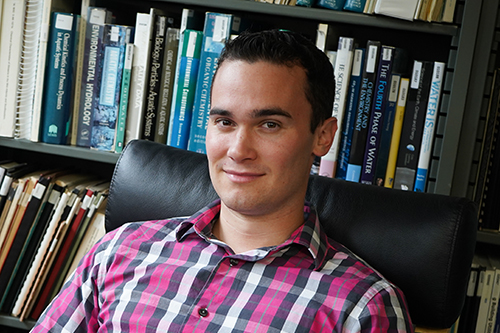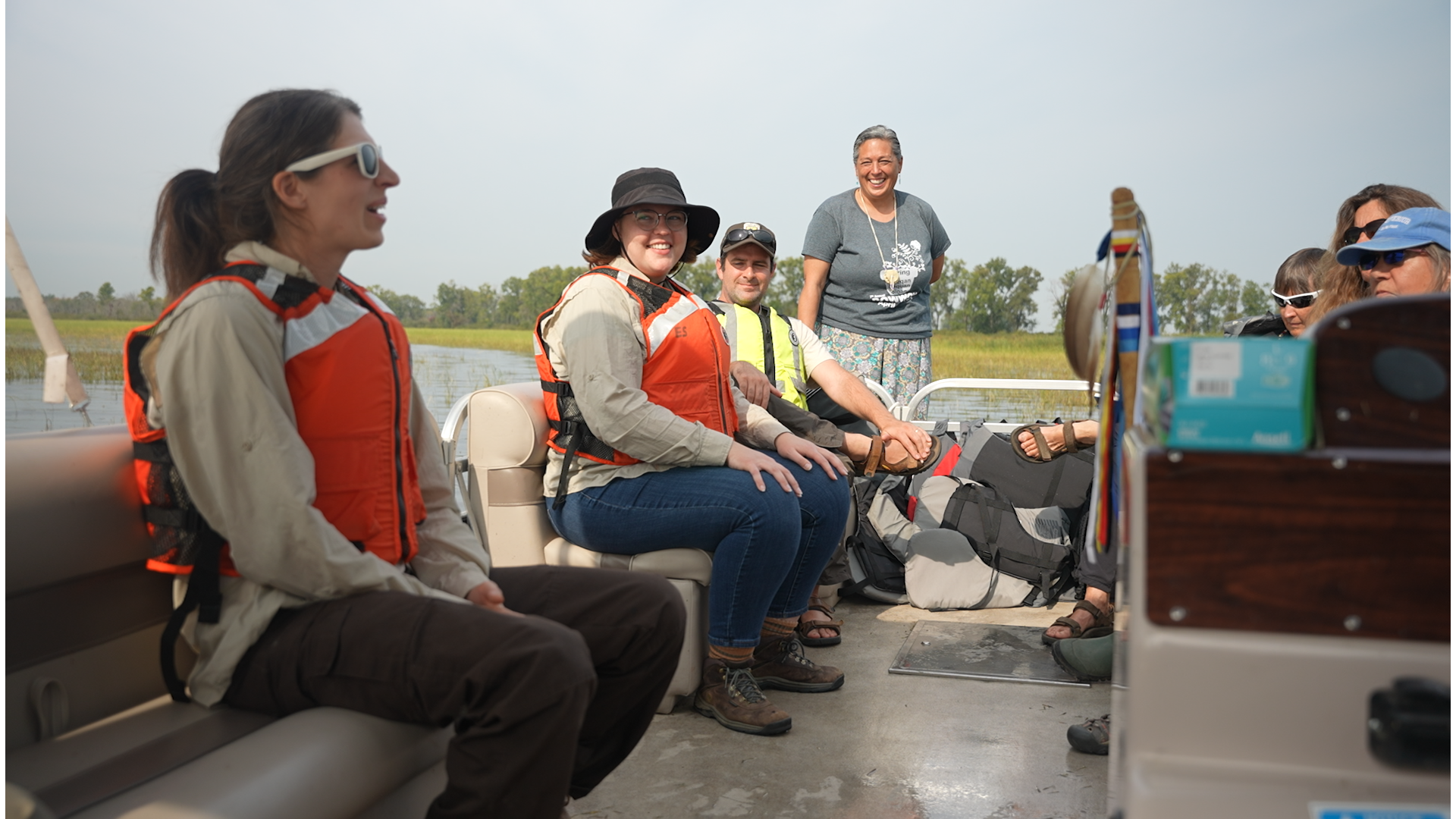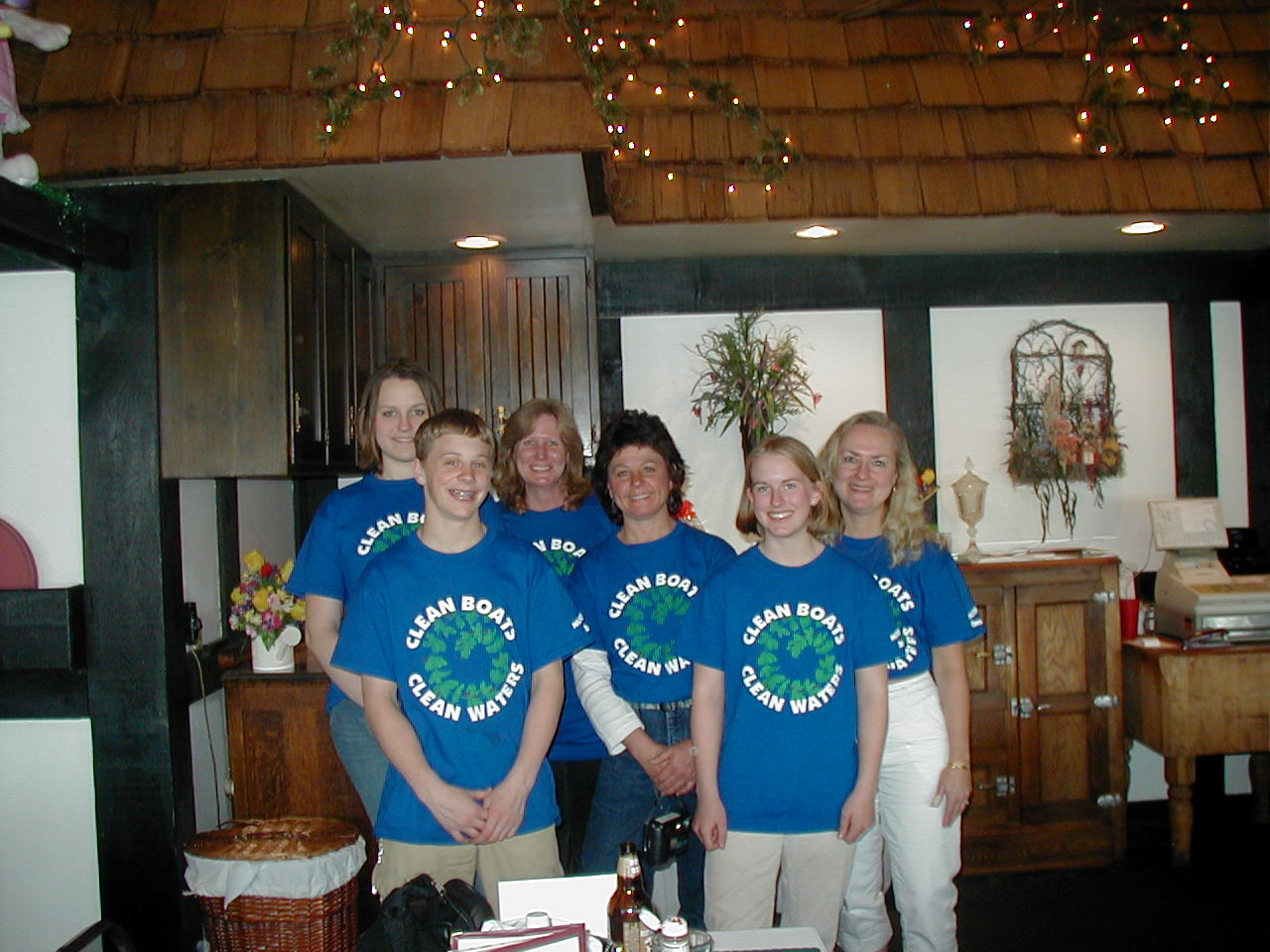
Adam Arend, the new Keillor Fellow, recently finished his master’s degree at the University of Michigan. (Photo: Bonnie Willison, Wisconsin Sea Grant)
While fellowships can be a great steppingstone for those with laser-focused career goals, they are also a smart way for recent graduates to explore options and get a clearer sense of how they want to contribute to a particular field.
Adam Arend, the new J. Philip Keillor Wisconsin Coastal Management-Sea Grant Fellow, falls into the latter camp. After high school, he considered entering the priesthood and began his academic journey in a seminary program at the University of St. Thomas in Minnesota. He shifted gears and completed his undergraduate education at Ave Maria University in Florida, where he majored in environmental science. His next stop was a master’s degree in environmental policy and planning from the University of Michigan School for Environment and Sustainability.
Now, with his graduate degree in hand, Arend (pronounced like “errand”) is eager to gain additional experience, work with his fellowship mentors and refine his career path. He is based in downtown Madison at the Wisconsin Coastal Management Program (WCMP) offices, part of the Wisconsin Department of Administration.
Arend works closely with Wisconsin Sea Grant Coastal Engineer Adam Bechle and WCMP Federal Consistency and Coastal Hazards Coordinator Kate Angel, who also serves on Sea Grant’s Committee on Outreach and Education.
“I’m excited for the opportunity to explore different aspects of coastal management and state government,” said Arend, who began the one-year fellowship in mid-August. “That aspect of the fellowship was really attractive to me. I’m ready to get a better idea of what exactly my next steps might look like, or what I might be doing in 15 years.”
One of his main tasks is to help update the Coastal Processes Manual. Said Bechle, “In updating the manual, Adam has picked up right where our last fellow, Yi Liu, left off. He has jumped into writing about measures to mitigate coastal hazards and the impacts of a changing climate on the Great Lakes.”
Arend will also have chances to interact with local government representatives. Added Bechle, “Adam’s interest in environmental policy will open up exciting new dimensions to the fellowship as he progresses and identifies opportunities to use his skills in that aspect of coastal hazards.”
A key aspect of the fellowship is connecting scientific knowledge with community needs. As Kate Angel noted, “High lake levels, storms, flooding, bluff erosion: Wisconsin’s residents have experienced significant impacts from recent events and conditions. The J. Philip Keillor Fellowship has allowed the Wisconsin Coastal Management Program and Wisconsin Sea Grant to provide valuable outreach and support to coastal stakeholders. It has been a very successful collaboration.”
Wisconsin Sea Grant Associate Director Jen Hauxwell echoed Angel’s observations: “Actionable science is so important here at Wisconsin Sea Grant. With a fellowship like this, not only are we investing in the development of an early-career professional, we’re also putting their expertise to bear on solving challenges to help the people of Wisconsin—in this case, in building resilience to coastal hazards like erosion and flooding.”
Arend will build on experience he got doing his master’s project—an alternative to a traditional master’s thesis—at the University of Michigan. He worked with an environmental law firm in Traverse City on the Blue Communities Project. As part of a team of students working with the firm, he brought a social science perspective to the group’s work, which centered on getting municipal entities, environmental groups and private businesses to join forces on common steps they could take to protect local waters.
“Our goal, essentially, was to figure out how to connect people in Traverse City and support them in working together on a better water stewardship ethic,” said Arend. While that process was not without hurdles, he noted, “Sometimes people are surprised how many common interests they have.”
This past summer, Arend remained in Michigan post-graduation to work on a Great Lakes Sustainability Indicator project.
While Arend is new to Madison, he’s no stranger to the Midwest, having grown up in Ohio and Michigan. He’s also spent time visiting extended family in Brookfield and Oconomowoc.
In the capital city, Arend hopes to learn more about how state government works and policy is crafted. In his free time, he enjoys working out, reading, following politics and listening to podcasts—a good way to while away his bus commute.
He’s ready to take on the challenges of the Keillor Fellowship and continue carving out his professional path. Concluded Arend, “I want to be in the freshwater world, and I’ve found my broader niche within the Great Lakes. Now I’m ready to define that further.”





